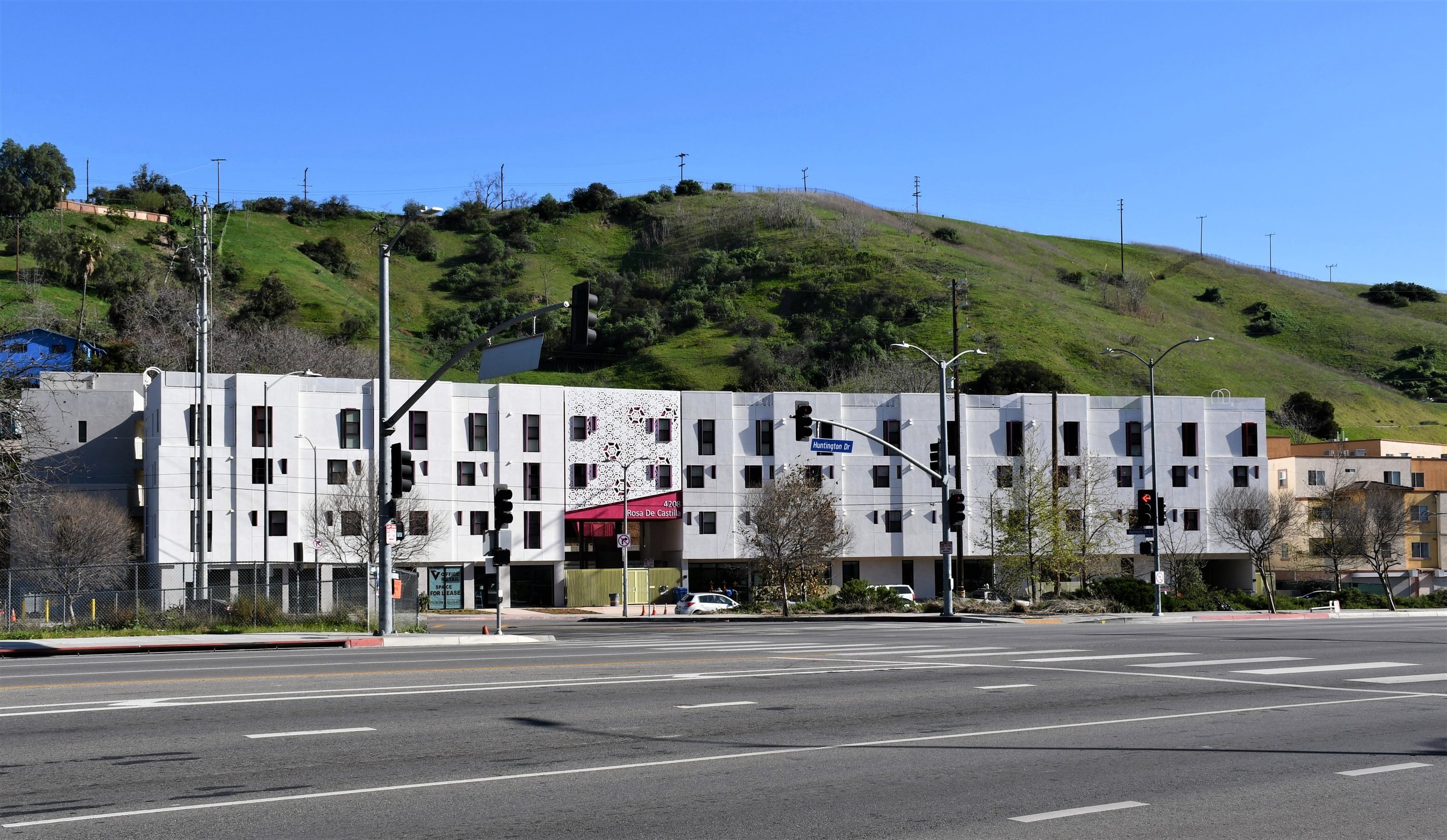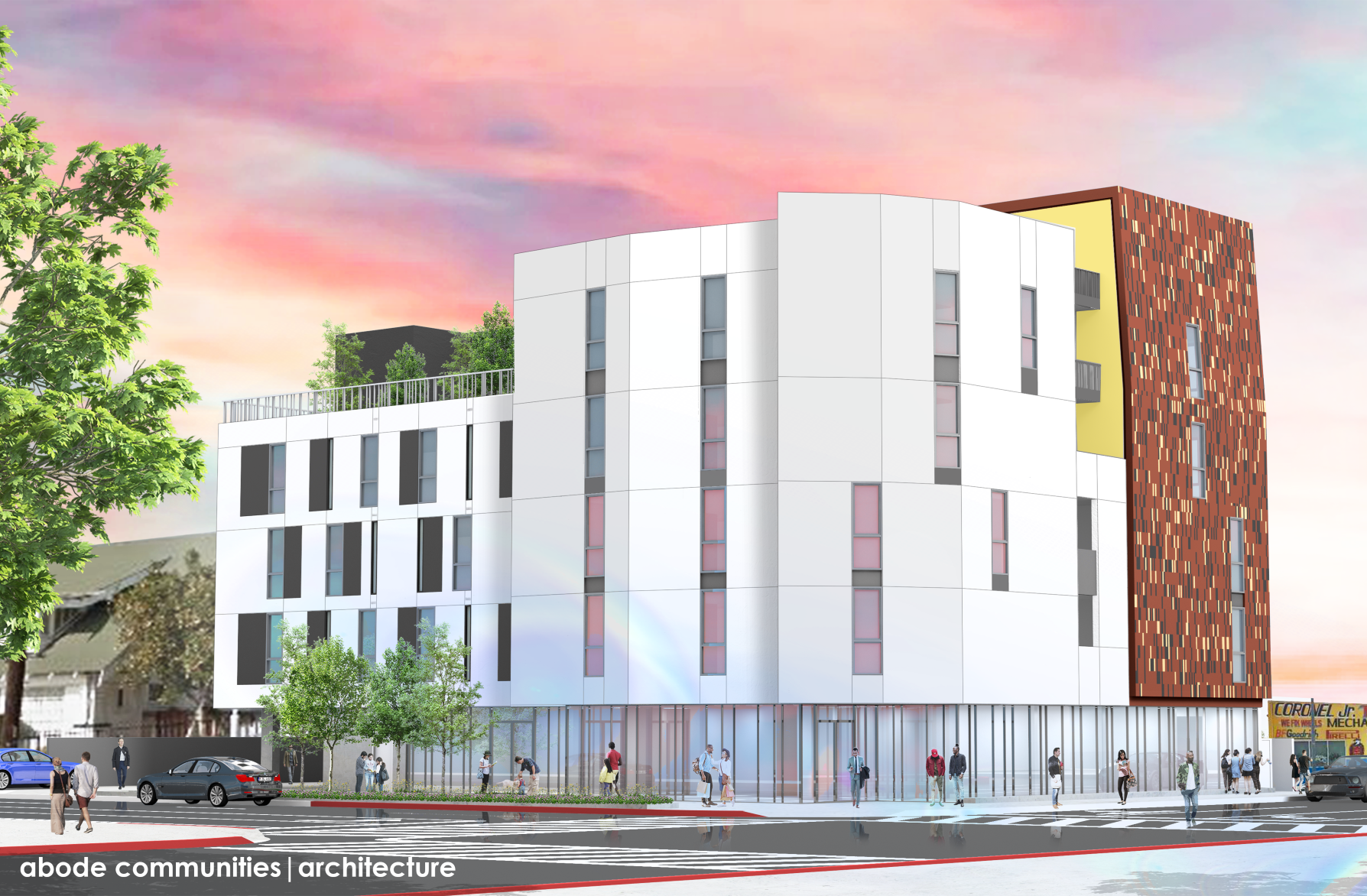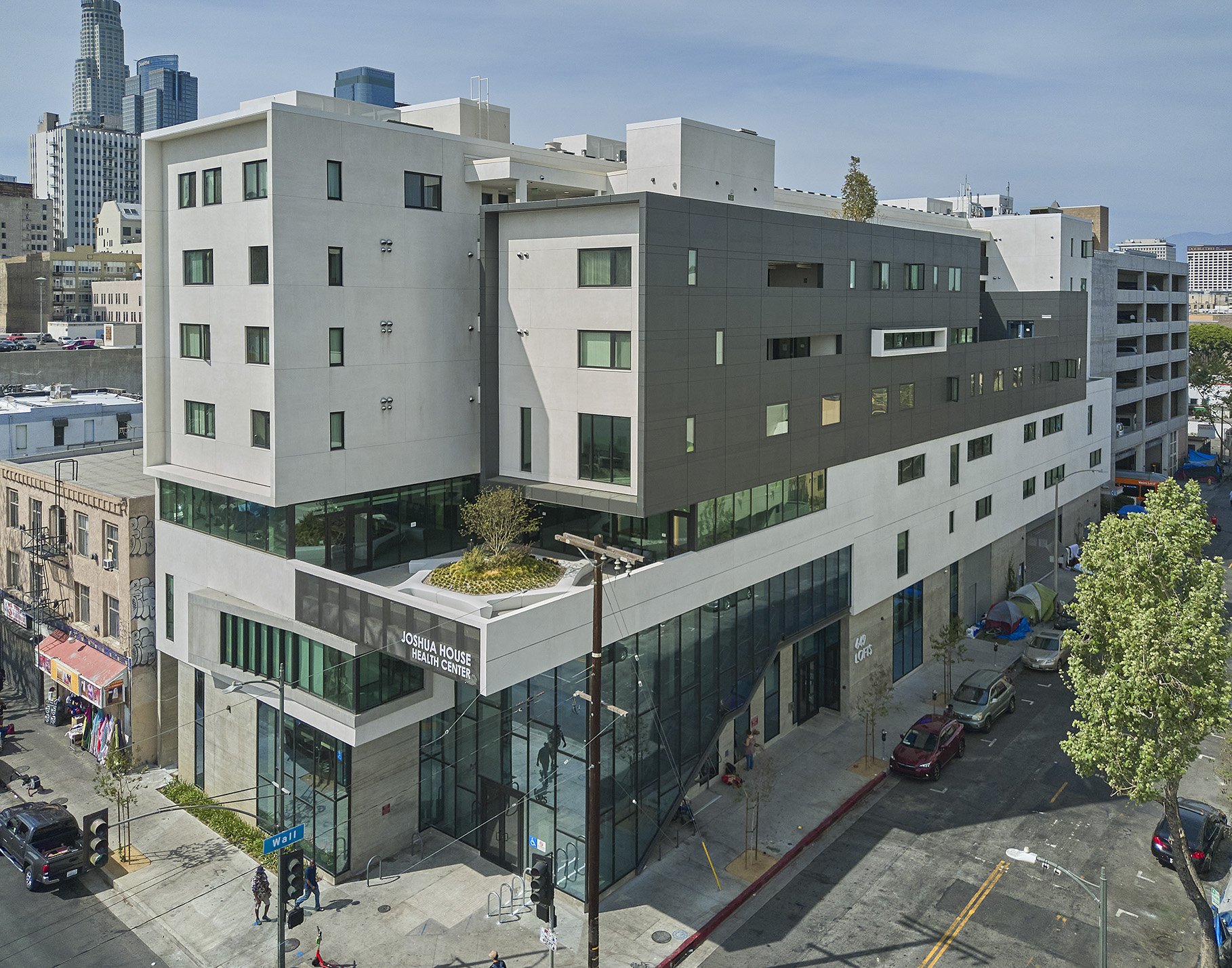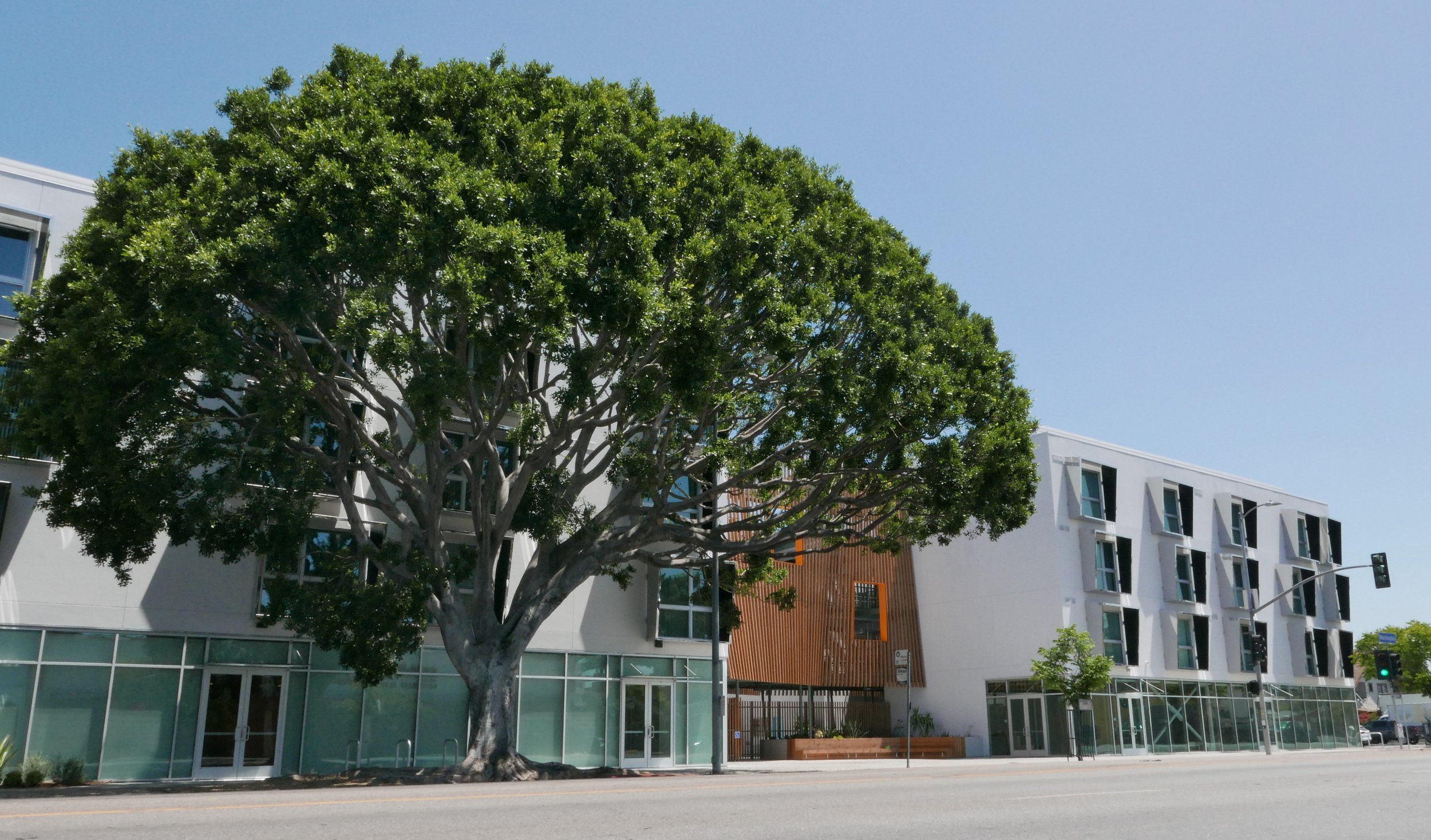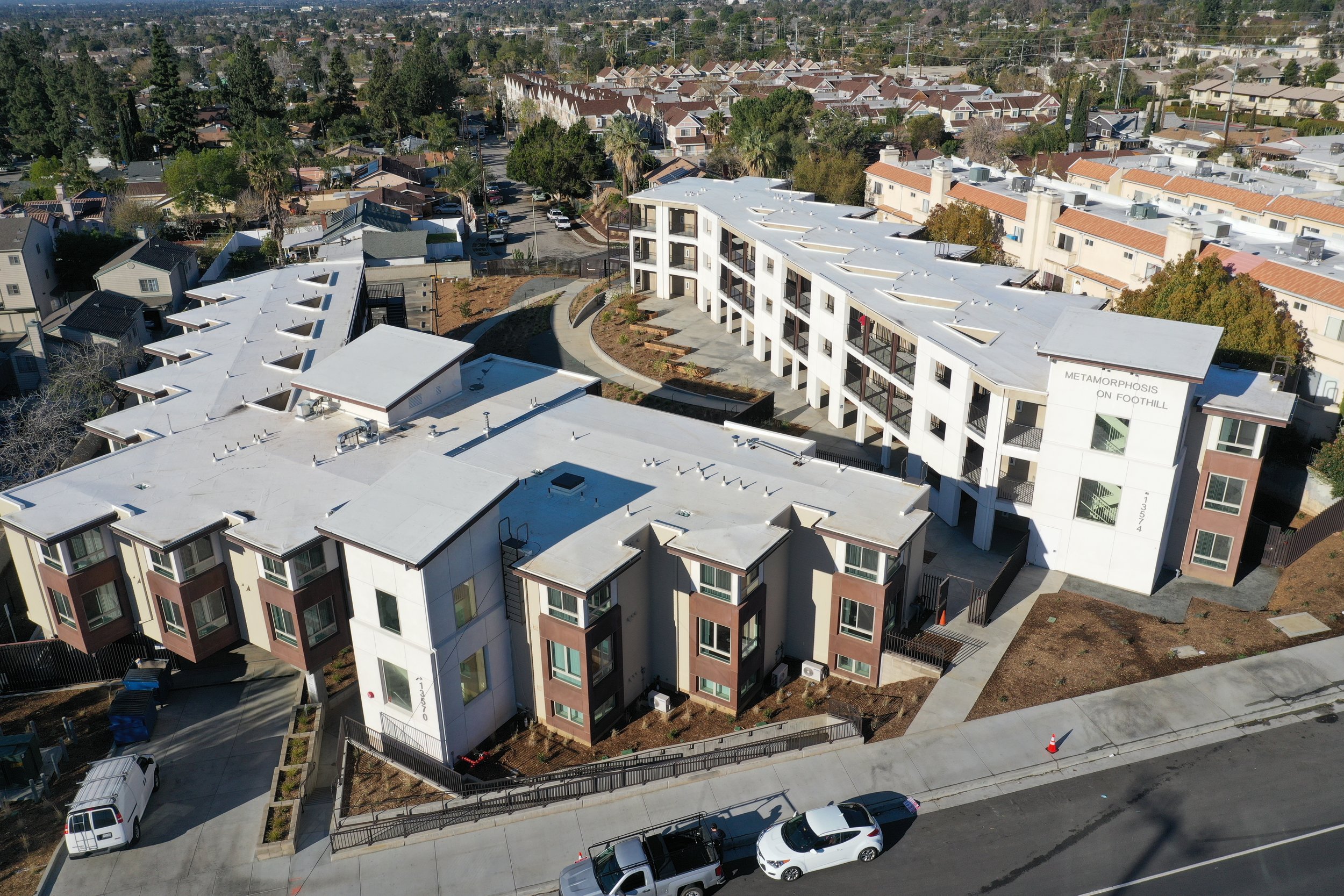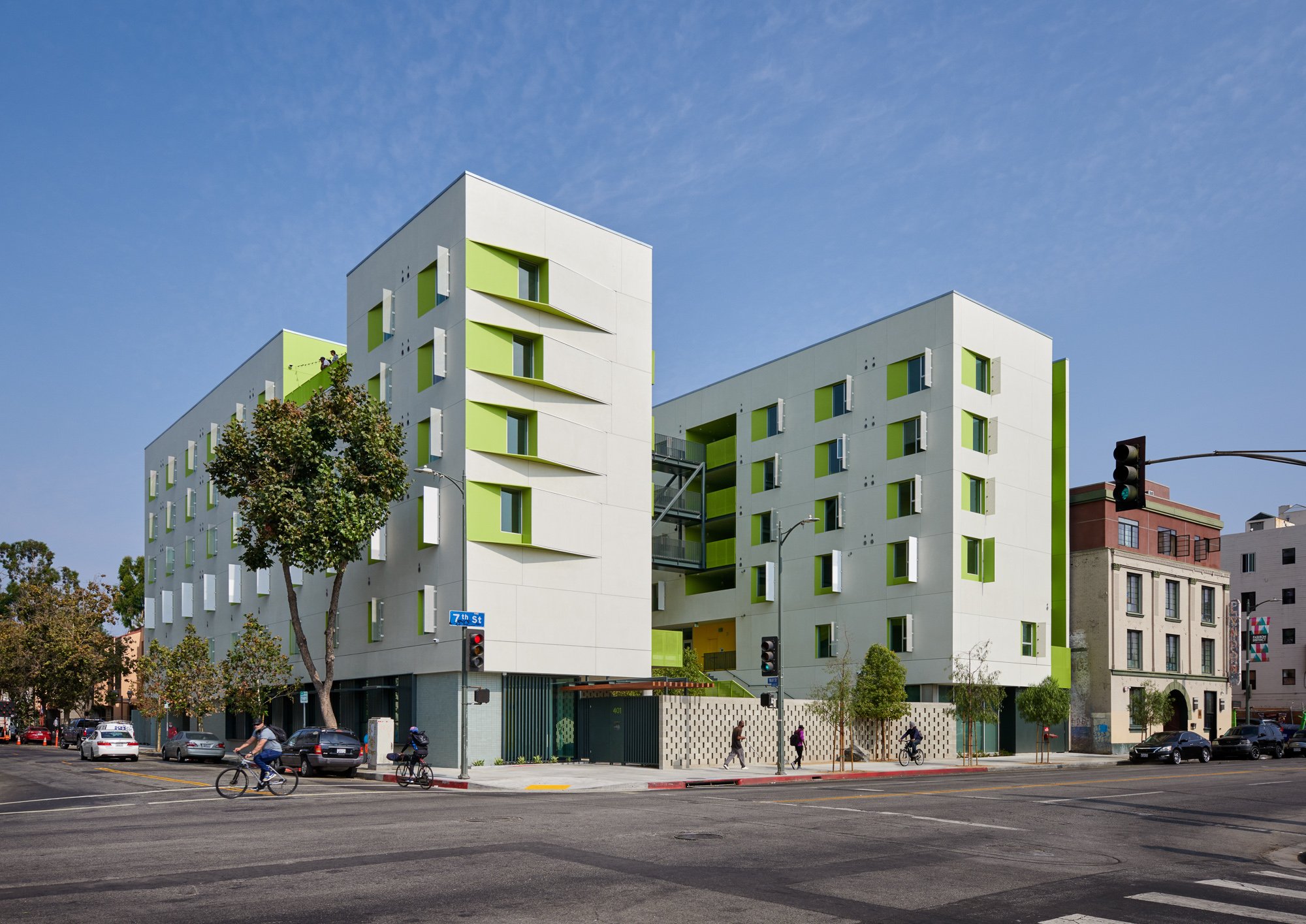Proposition HHH - Homes End Homelessness
Proposition HHH, passed by voters in 2016, is delivering tangible and lasting results across our communities to get unhoused residents off the streets and into stable homes. Currently, there are more than 8,000 units in the pipeline, which will get upwards of 13,000 of our most vulnerable into safe and PERMANENT housing along with services. Learn more about the impact of Proposition HHH funding:
Permanent supportive housing is an evidence-based housing intervention that combines on-going rental assistance with supportive services—such as health and mental health care for chronically homeless households. It allows formerly homeless individuals and families to live as independently as possible and get support from professional staff, particularly those with disabilities and a lengthy history of homelessness. This model has been demonstrated to permanently keep the majority of persons who enter the program from ever becoming homeless again. Permanent Supportive Housing is not a homeless shelter; rather, it is designed to help people permanently avoid homelessness.
“In the long term, it is cheaper to pay for the costs of building covenanted, permanent housing now than employing other, short-term solutions like shelters. Permanent supportive housing is a public asset that serves a societal need now and in the long run. ”
SCANPH Resources on HHH:
-
Read our concise but comprehensive overview of HHH Funding.
-
Policy choices matter. So let’s continue to invest in policies that give everyone a place to call home.
-
HHH funding is a pivotal part of investing in a full continuum of housing solutions. Learn how here.
Housing Provider Testimonials:
Educational Events: Webinars on HHH Project Case Studies
Learn what it takes to take a development from concept to completion directly from SCANPH member developers who are hard at work building homes.
Skid Row Housing Trust’s 649 Lofts:
A unique, cutting edge project design that incorporates both housing and health in one creatively designed community.
LA Housing Department HHH Tracker
Data: Cost Comparisons
The costs of market-rate and affordable housing are entirely comparable; in fact, a recent UCR report notes that a market-rate unit can average as much as $579,000 in Los Angeles, which doesn’t include key components that define HHH-developments: robust building materials, prevailing wages, significant operating and rental support reserves, and leading sustainability techniques. Below is a sampling of typical project costs per project type:


